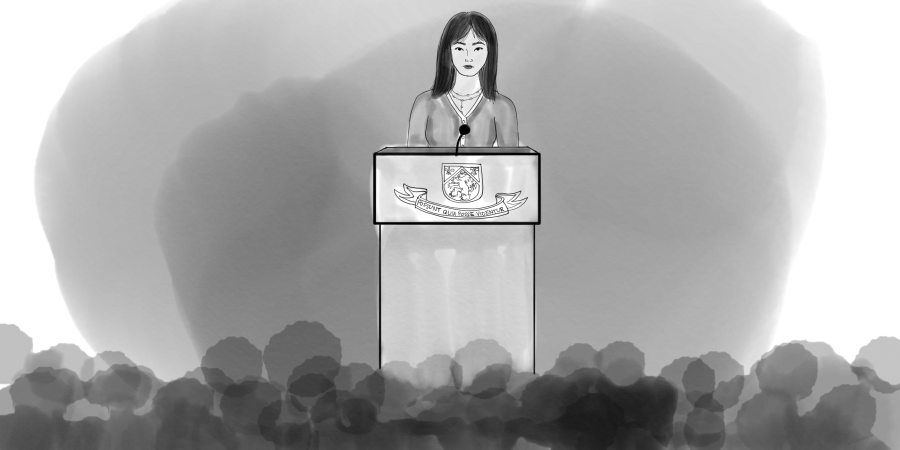This past Monday, Lisa See addressed the school during an all-school assembly. See is a multiple times New York Times bestselling author, with years of leadership in the local Chinese-American community and considerable public speaking experience.
But to be honest, as one of the leaders of Asian Students in Action, when we as a club first started considering her as a potential speaker, I was concerned. What message would we be sending as a club by inviting someone who looked white and was only one-eighth Asian as our first all-school speaker? How would we address the apparent contradiction in See’s physical appearance and her ethnic identity? But, I immediately felt guilty about my doubts.
See’s writing centers around Chinese history and her personal connection to it, and she has conducted exhaustive research on Chinese and Chinese-American culture.
Most importantly, she clearly personally identifies with her Chinese-American roots. Why was I trying to police someone else’s identity? Ultimately, we decided to invite See because of her unparalleled experiences researching and writing about Chinese and Chinese-American culture. But, we also believe that the she has an important perspective to offer, one that is particularly relevant in a society as diverse as America. The complicated dynamics and contradictions present in my feelings about See can be seen in many aspects of the dialogue surrounding race and identity today.
See’s identity, for example, was undoubtedly shaped by her personal connection to Chinese-American history and her experiences growing up in Chinatown. But, I would be remiss to ignore that her experiences have also been impacted by her comparative privilege within society as someone who looks white. Personally, as someone who looks obviously East Asian, I don’t have the privilege of escaping the stereotypes or assumptions that come with being Asian.
However, I am also aware of how I have benefited from “looking Asian,” in that my cultural identity has never been questioned by others on the basis of my physical appearance.
In her first book, “On Gold Mountain: The One Hundred Year Odyssey of My Chinese-American Family,” which follows the story of her great-grandfather, See wrote that “I don’t look Chinese, but I’m Chinese in my heart.” What does it mean to be Chinese at heart? What about the impact of outward appearance and the advantages and disadvantages that come with looking like a racial minority? See has Chinese ancestry. She grew up in a Chinese-American community and she has made significant efforts to stay connected with that part of her identity.
See has continually maintained that she did not “choose” to be Chinese. But imagine if someone who was seven-eighths Asian and one-eighth white decided to present themselves as racially white. Regardless of his or her cultural upbringing and personal identity, he or she would not be accepted into “white society” as someone who looks like a racial minority. It is because of the privilege that comes with looking white that See can maintain her hybrid identity.
Our goal as a club in inviting See thus centers around this important discussion about how personal identity intersects with society’s perceptions of identity. America, Los Angeles and our school community are all increasingly diverse places. In order to reckon with and understand the dynamics surrounding race and ethnic identity, we need to start a dialogue about how we define and understand them today.
































